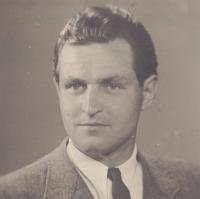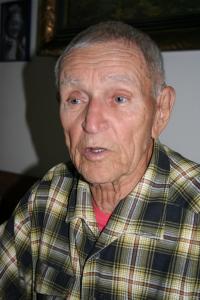Working less meant survival

Download image
Jaroslav Pek was born in Týn nad Vltavou on 14 December, 1919. During the economic crisis his father lost a job at a bankrupted sawmill. A communist idea resonated in the family, the father was a member since its establishment in 1921 and Jaroslav was active in the Communist Union of Youth. In 1931 the family left to Kharkiv in Soviet Ukraine. They returned to Czechoslovakia in 1937. After the war broke out, Jaroslav joined the National Movement of Working Youth and resistance activity. He was distributing leaflets, was a connection, helped families of imprisoned members of resistance. They were hiding people at home, amongst others also Julius Fučík. Jaroslav was arrested by the gestapo, was interrogated and a month later transported to concentration lager Mauthausen. He worked in several jobs there - from quarry to carpenter, where he met his father, to the Steyr factory. Finally in 1944 he was sent to Auschwitz, where they needed car mechanic. After evacuation of the lager in January 1945 he got to Germany. After war he happily reunited with his father. Jaroslav began working with agricultural machines and then was active at the Communist Central Committee and at the Governmental Office. He cooperated also with Rudolf Slánský or Ota Šik. In 1968 he stood up against the Warsaw pact army troops’ invasion and could only work in lower ranks from then though still at the Governmental Office. After 1989 he together with other prisoners of the concentration lager Mauthausen was issuing a magazine Mauthausen block. He died on 16 November 2012 in Prague.

